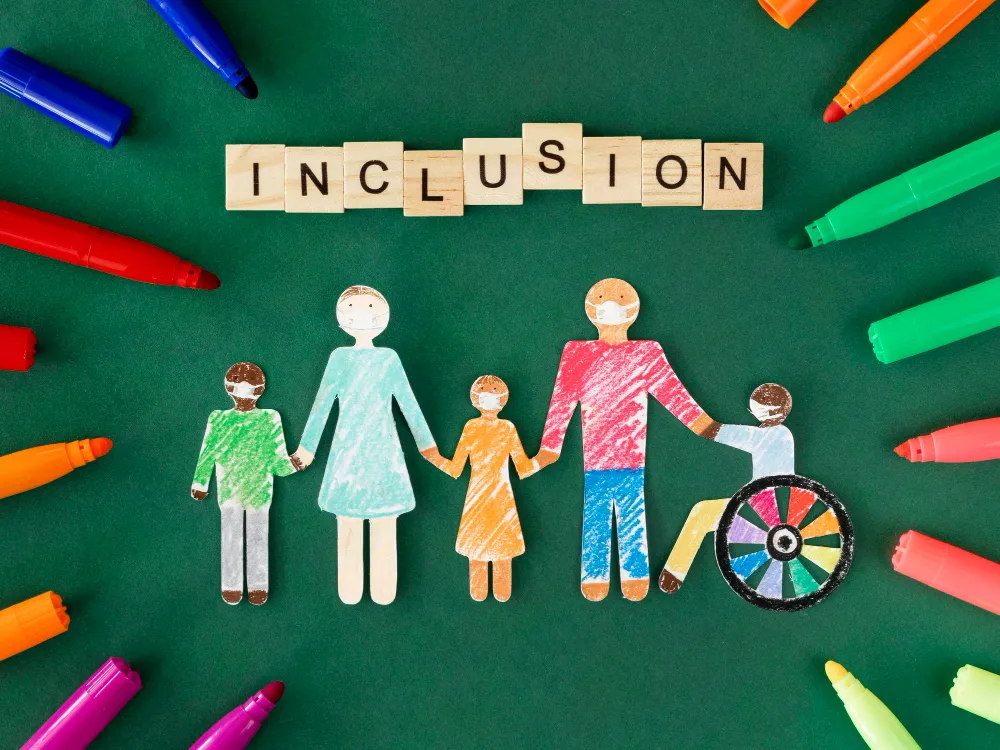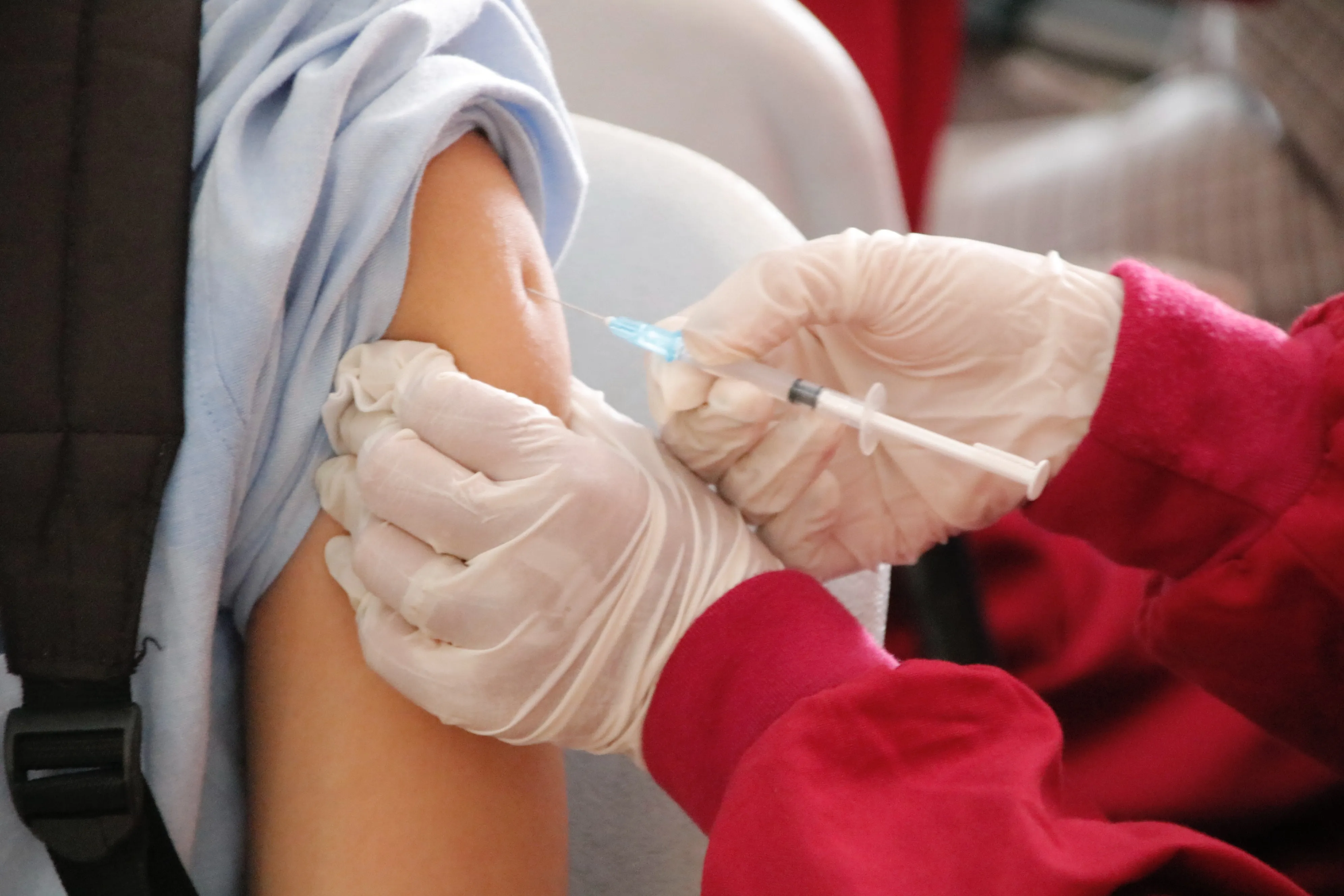Does Birth Control Cause Autism? Understanding the Science
To date, multiple studies have been conducted to investigate the potential association between birth control use and autism. These studies have consistently found no significant correlation between the two.
.jpeg)
Debunking the Myth: Birth Control and Autism
In recent years, a controversial claim has emerged linking birth control to the development of autism. However, it is important to understand that this claim lacks scientific evidence and is not supported by current research. Let's delve into the controversy and examine this claim more closely.
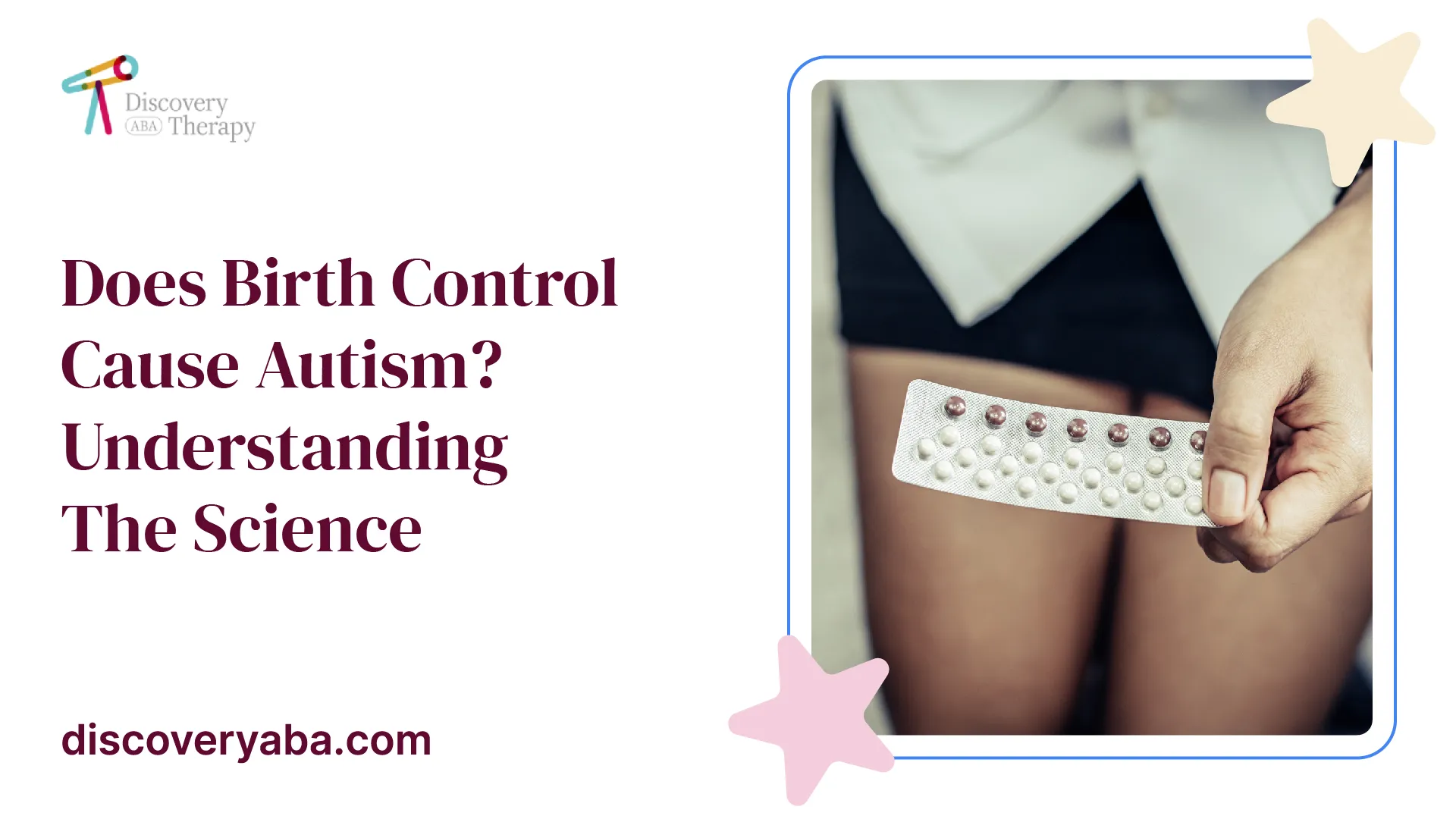
Understanding the Controversy
The controversy surrounding the supposed link between birth control and autism stems from anecdotal reports and misinterpretation of limited scientific studies.
Some individuals believe that hormonal changes caused by birth control injections and other forms of contraception may impact fetal development and increase the risk of autism. However, it's crucial to approach this claim with skepticism and consider the available scientific evidence.
Examining the Claim
To date, multiple studies have been conducted to investigate the potential association between birth control use and autism. These studies have consistently found no significant correlation between the two.
For instance, a study published in the Journal of the American Medical Association (JAMA) analyzed data from over 82,000 children and found no evidence to support the claim that birth control injections or other forms of contraception increase the risk of autism.
It is important to note that correlation does not imply causation. While there may be cases where individuals who have used birth control also have children with autism, this does not establish a direct causal relationship. Other factors, such as genetics and environmental influences, play significant roles in the development of autism.
In conclusion, the claim that birth control injections or other forms of contraception cause autism is not supported by scientific evidence. It is important to rely on well-conducted studies and consult with healthcare professionals for accurate information regarding birth control methods and their potential effects.
The Science Behind Autism
To understand the potential relationship between birth control and autism, it's important to first explore the science behind autism itself. This section will provide an overview of what autism is and the known causes and risk factors associated with the condition.
What is Autism?
Autism, also known as Autism Spectrum Disorder (ASD), is a neurodevelopmental disorder that affects communication, social interaction, and behavior. It is characterized by a range of symptoms and can vary widely in terms of severity and presentation. Individuals with autism may have difficulties with social interaction, communication, repetitive behaviors, and sensory sensitivities.
Autism is a complex condition with a multifactorial etiology, meaning it is influenced by a combination of genetic and environmental factors. Researchers have made significant progress in understanding autism, but there is still much to learn about its exact causes and mechanisms.
Known Causes and Risk Factors
While the exact causes of autism are not fully understood, research suggests that a combination of genetic and environmental factors contribute to its development. Here are some known causes and risk factors associated with autism:
- Genetics: Evidence strongly supports a genetic component in autism. Certain genetic mutations or variations can increase the risk of developing autism. However, it's important to note that not all individuals with these genetic factors will develop autism. Genetic studies have identified various genes that may play a role in autism, but more research is needed to fully understand their impact.
- Prenatal Factors: Certain prenatal factors have been associated with an increased risk of autism. These include advanced parental age, maternal infections during pregnancy, exposure to certain medications, and complications during pregnancy or birth. However, it's important to remember that these factors are not direct causes of autism but rather potential contributors.
- Environmental Factors: Some environmental factors have been studied in relation to autism, but the evidence is limited and inconclusive. Factors such as prenatal exposure to air pollution, certain chemicals, or maternal use of specific medications have been investigated, but their direct association with autism remains uncertain.
- Other Neurodevelopmental Conditions: Certain neurodevelopmental conditions, such as intellectual disability and epilepsy, are more common among individuals with autism. Although there may be shared underlying factors, it's important to recognize that these conditions are distinct from autism itself.
Understanding the science behind autism provides a foundation for exploring the potential relationship between birth control methods and the development of autism. While research continues to shed light on the causes and risk factors associated with autism, it is important to approach the topic with careful consideration and rely on evidence-based information.
Birth Control and Hormonal Changes
To understand the potential link between birth control and autism, it is important to explore the hormonal changes that occur when using contraceptive methods. This section will delve into how birth control works and its effects on hormonal balance.
How Birth Control Works?
Birth control methods, such as contraceptive pills, injections, implants, and intrauterine devices (IUDs), are designed to prevent pregnancy by altering the hormonal balance in the body. The most common types of birth control methods contain synthetic versions of hormones like estrogen and progesterone, which play a key role in the menstrual cycle and fertility.
These synthetic hormones work by suppressing ovulation, preventing the release of an egg from the ovaries. They also thicken the cervical mucus, making it more difficult for sperm to reach the egg. In some cases, they may also thin the lining of the uterus, making it less receptive to implantation.
It is important to note that the hormones used in birth control methods are different from the hormones naturally produced by the body. The synthetic hormones mimic the effects of the natural hormones but in different ways and concentrations.
Effects on Hormonal Balance
The introduction of synthetic hormones through birth control methods can cause temporary changes in the hormonal balance of the body. These changes are intended to prevent pregnancy, but they can also have effects on various physiological processes.
The hormonal changes brought about by birth control methods can lead to side effects such as changes in menstrual bleeding patterns, breast tenderness, mood swings, and weight fluctuations. However, there is currently no scientific evidence to support a direct causal link between birth control methods and autism.
It is important to consult with healthcare professionals and consider individual differences when choosing a birth control method. The decision to use birth control should be based on personal factors, such as family planning goals, medical history, and lifestyle.
It is crucial to rely on credible sources and scientific research when seeking information about the potential correlation between birth control methods and autism.
Research on Birth Control and Autism
To better understand the potential relationship between birth control and autism, researchers have conducted numerous studies to investigate any possible links. This section provides an overview of the available studies, along with their findings and limitations.
Overview of Studies
Several studies have been conducted to explore the association between birth control use and the risk of autism. These studies have utilized different research designs and methodologies to examine this complex topic.
One study published in Journal of the American Medical Association analyzed data from over 3,000 children with autism and compared it to a control group. The researchers found no significant difference in the prevalence of autism between women who used birth control and those who did not.
Another study, published in JAMA Psychiatry, focused on birth control injections and their potential association with autism. The study involved more than 800,000 women and found no increased risk of autism in children born to mothers who received birth control injections.
It's important to note that these studies are just a few examples of the research conducted in this area. Each study contributes to the broader understanding of the topic, but it is crucial to consider the limitations and overall body of evidence.
Findings and Limitations
While some studies have found no association between birth control use and autism, it's important to acknowledge the limitations of the research conducted thus far. Here are some key points to consider:
- Correlation versus Causation: The studies conducted so far have focused on identifying any correlation between birth control use and autism. Correlation does not imply causation, and further research is necessary to establish a causal relationship, if any.
- Study Design and Methodologies: Different studies have employed various designs, such as retrospective analyses and population-based studies. Each type of study has its own strengths and limitations, and it is essential to consider the methodology when interpreting the findings.
- Sample Size and Representation: The sample sizes of the studies may vary, and they might not represent the entire population. It is crucial to consider the generalizability of the findings and whether they can be applied to a broader population.
- Confounding Factors: There may be other factors that contribute to the development of autism, such as genetic predisposition or environmental influences. It is challenging to isolate the impact of birth control use alone in the development of autism.
- Continuing Research: The field of research on birth control and autism is ongoing, with new studies being conducted regularly. As more studies emerge, the body of evidence will continue to grow, providing a more comprehensive understanding of the topic.
It's important to approach the research on birth control and autism with caution. While existing studies have not found a significant association, further research is needed to fully comprehend the potential relationship.

Examining the Evidence
To better understand the potential connection between birth control and autism, it is important to examine the existing evidence and research. Several studies have investigated the relationship between birth control implants and autism, as well as other forms of birth control and the risk of autism.
Studies on Birth Control Implants and Autism
Research examining the association between birth control implants and autism is limited. One study published in 2016 analyzed data from a large population-based cohort in Denmark.
The study compared children born to women who had used birth control implants with those born to women who had never used any form of hormonal contraception. The researchers found no significant increase in the risk of autism among children exposed to birth control implants in utero compared to those who were not exposed.
While this study provides valuable insights, it is important to note that it focused specifically on birth control implants and did not explore the potential effects of other forms of birth control. Further research is needed to fully understand the impact of birth control implants on the risk of autism.
Other Forms of Birth Control and Autism Risk
Beyond birth control implants, research has also investigated the potential relationship between other forms of birth control and the risk of autism. One large-scale study published in 2018 examined data from over 600,000 children born in Sweden. The researchers compared the risk of autism in children born to mothers who had used different types of birth control methods before pregnancy.
The results of this study indicated that there was no increased risk of autism among children born to mothers who had used contraceptive pills, injections, or other hormonal birth control methods prior to pregnancy compared to those who had not used any hormonal contraception.
However, it is important to note that this study focused on the association between birth control methods and autism and did not establish a causal relationship.
While these studies contribute to the body of knowledge on the topic, it is essential to interpret the research findings with caution. Factors such as study design, sample size, and potential confounding variables can influence the outcomes. It is advisable to consult with healthcare professionals and experts in the field for a comprehensive understanding of the current evidence.
By examining the available evidence, we can gain insights into the potential relationship between birth control and autism. However, it is important to acknowledge the limitations and gaps in the current knowledge.
Further research is necessary to better understand this complex topic and provide more definitive answers. In the meantime, it is crucial for individuals and healthcare providers to engage in informed decision-making regarding birth control methods and consider the broader context of neurodevelopmental disorders.
Factors to Consider
While exploring the potential link between birth control and autism, it's essential to consider other factors that may contribute to the development of autism. Autism is a complex neurodevelopmental disorder influenced by various genetic and environmental factors.
Other Potential Contributors to Autism
It's crucial to recognize that autism is a multifactorial condition. Several other factors have been identified as potential contributors to the development of autism. These factors include:
- Genetic Factors: Research has shown that genetic factors play a significant role in the development of autism. Certain gene mutations and variations have been associated with an increased risk of autism spectrum disorder (ASD). These genetic factors can interact with environmental influences, including exposure to certain substances, to increase the risk of autism.
- Environmental Factors: While the exact environmental factors that contribute to autism are still being investigated, some studies suggest that prenatal exposure to certain chemicals, infections, and air pollution may be associated with an increased risk of autism. However, more research is needed to establish a clear causal relationship.
- Prenatal Factors: Prenatal factors such as maternal health, maternal age, and prenatal nutrition have been studied as potential contributors to autism. Maternal use of certain medications during pregnancy, including anti-epileptic drugs and selective serotonin reuptake inhibitors (SSRIs), has also been investigated. However, it's important to note that the associations between these factors and autism are complex and require further research.
Individual Differences and Genetic Factors
Each individual with autism is unique, and the severity of symptoms can vary widely. This variability is likely influenced by individual differences and a combination of genetic and environmental factors. While birth control has been suggested as a potential factor in the development of autism, it's important to remember that it is not the sole cause.
The available research on the relationship between birth control and autism is limited and inconclusive. It's crucial to approach this topic with caution and rely on well-designed studies that consider a range of factors.
Understanding the complexity of autism requires a comprehensive examination of various factors, including genetics, environment, and individual differences. Ongoing research is essential to gain a deeper understanding of the causes and risk factors associated with autism spectrum disorder.
Conclusion
After examining the available research and understanding the science behind autism, it is clear that there is no conclusive evidence to support the claim that birth control causes autism. The controversy surrounding this topic has led to speculation and concern, but it is important to rely on scientific evidence to draw informed conclusions.
Autism is a complex neurodevelopmental disorder with multifactorial causes. While the exact cause of autism is still not fully understood, extensive research has identified a variety of genetic and environmental factors that contribute to its development. The claim that birth control injections or other contraceptive methods directly cause autism is not supported by scientific evidence.
Research studies investigating the potential link between birth control and autism have not found any significant association. These studies have examined various birth control methods and their potential effects on neurodevelopmental disorders, including autism. The findings consistently indicate that there is no causal relationship between the use of birth control and the occurrence of autism.
It is crucial to consider other potential contributors to autism, such as genetic factors and environmental influences. Research has shown that genetic variations play a significant role in the development of autism. Additionally, factors like prenatal exposure to certain medications, maternal age, and maternal health conditions have been identified as potential risk factors for autism.
In conclusion, based on the available scientific evidence, there is no substantiated link between birth control and autism. It is important to rely on accurate information and consult with healthcare professionals when making decisions regarding birth control methods. If you have concerns about pregnancy planning or the use of birth control, it is recommended to discuss them with your healthcare provider.
Remember, autism is a complex condition, and it is essential to focus on supporting individuals with autism and promoting a better understanding of their unique needs.
Sources
Does Your Child Have An Autism Diagnosis?
Learn More About How ABA Therapy Can Help
Find More Articles
Contact us
North Carolina, Nevada, Utah, Virginia
New Hampshire, Maine
Arizona, Colorado, Georgia, New Mexico, Oklahoma, Texas
.avif)


















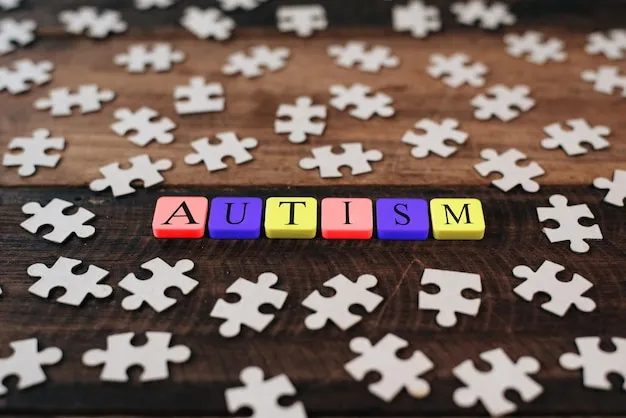






















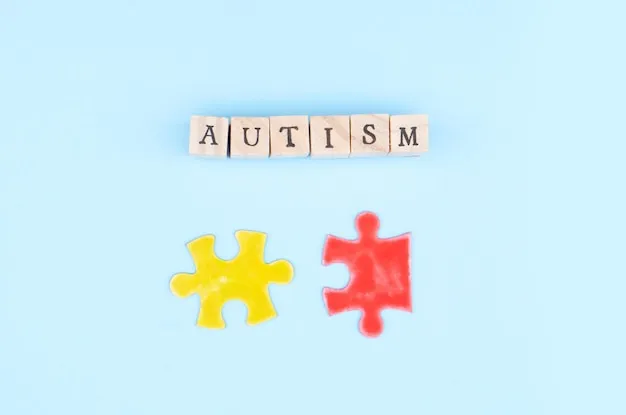












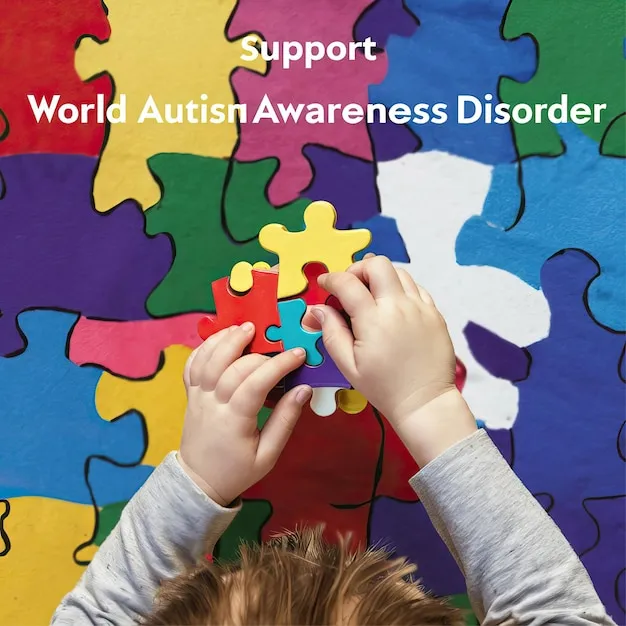








.jpeg)


